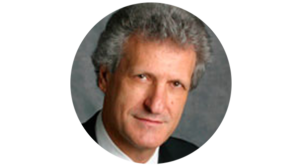Glorification of excess: haughtiness as a virtue
TORONTO – Language is everything, or so it seems. I do not know for sure. My instruction in Italian was interrupted when my parents made the decision to resume their (mine included) lives in the land my maternal grandfather called home since the late 1800s, and in which he became “citizen” before Wilfrid Laurier took the country into the 1911 election.
Their decision forced me to attempt to learn the meaning and nuances of a language that was alien to the reference points of my native environment and the values that sustained it. It remains an unfinished process. Until the day my mother passed, I do not recall a single time when she spoke a single word in English to me, but she demanded I/we master our task including the reason and purpose for every word, every phrase, every sentence.
Both my parents read incessantly in their spare time. They demanded respect for language and what it means to both the speaker/writer and to the intended listener. The new environment, post World War II Canada, often displayed an intolerable hostility, even for young families like ours. We were many.
The social, cultural, linguistic environment “integration” was neither easy nor “painless”; not for me; not for my siblings; especially not nor my parents… particularly for my mother. She was a young woman, who, as a Canadian born abroad, had lost her status because she married my father. Credit the War Measures Act, 1940, for declaring him and Italians everywhere as “enemy aliens”. I did not know that as a child growing up in Orange Toronto.
Oh, the annual Orange Parade celebrated the victory of William of Orange and his seizure of the English throne in 1688 and to keep it safe from Catholic practices, rites and rituals. It was an expression of triumphalism over the vanquished, recalling a practice common in the Roman Republic more than 2,000 years ago. We did not participate. It was not meant to “include” us. Happily, it exists no more.
The “phenomenon” has morphed into something else. What has always been disconcerting in that process is the manipulation of vocabulary to cast aspersion on the importance of a meritocracy rooted in competence and values (responsibility, obligation etc.) and to replace them with glorification of emotion as the ultimate goal to experience and to promote.
Now everything is “awesome”; everyone is “passionate” – if not “incredibly passionate” – about something (maybe excluding a sexual encounter). Political leaders warn us against “toxic masculinity” against “extreme right (alt-right) or loony leftists”, as the case may be. What does any of this even mean? Anyone dares entertain a view different from theirs is labelled a “hater”; if they offend the sensibilities of who knows whom, then they are “…-phobic”.
School boards and “educators” engage in utilizing police to enforce their interpretation of inclusion. Parents are expelled and removed forcibly from public premises because they object to what teachers are imparting in the classrooms (contrary to Law). Young male students who support their female colleagues in the privacy and exclusive use of female washrooms for girls, are expelled, charged, arrested and jailed.
Muslims protesting against the complicity of elected leaders in this “movement” on the weekend may be in for a large surprise.




